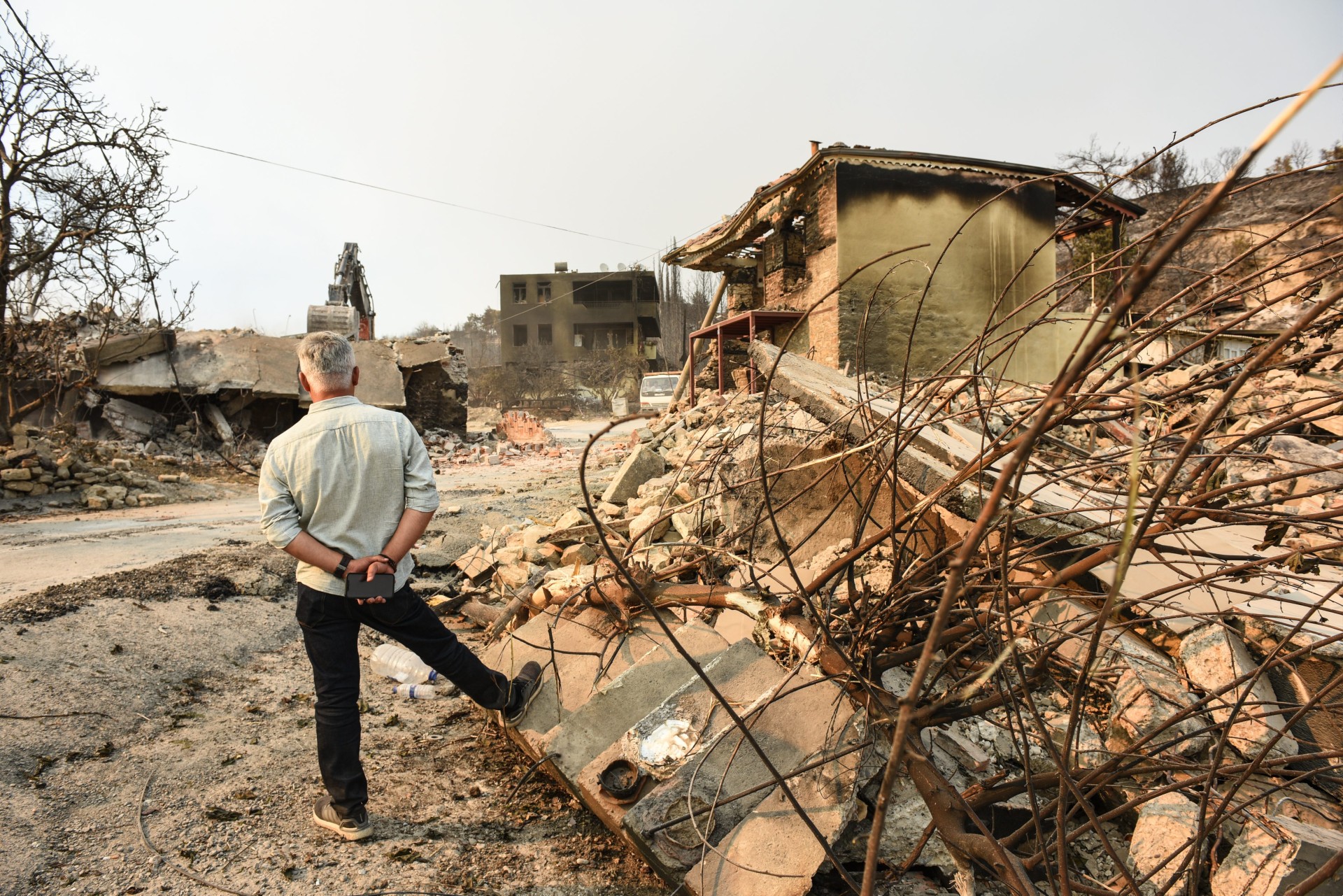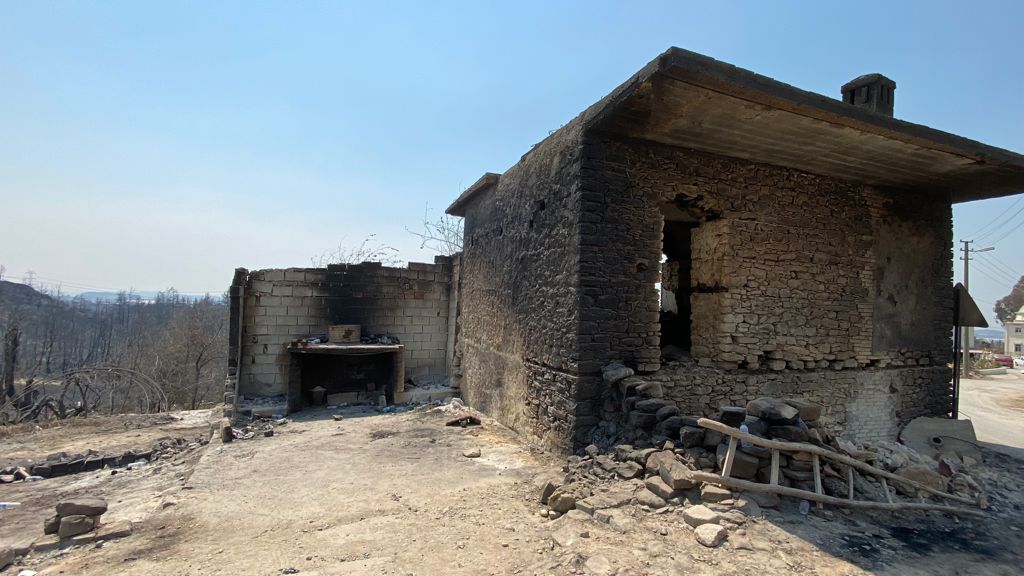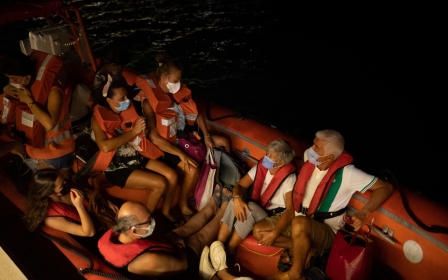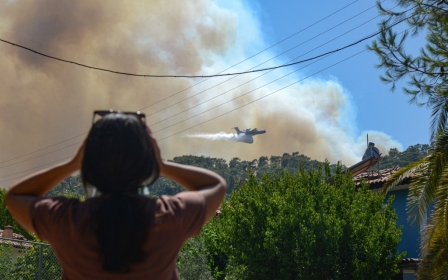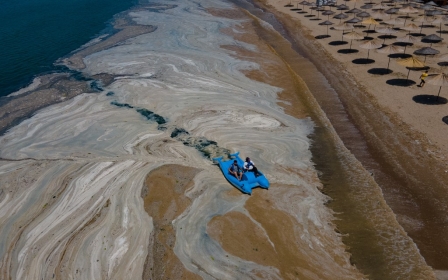Turkey: Wildfire devastates entire village in the south
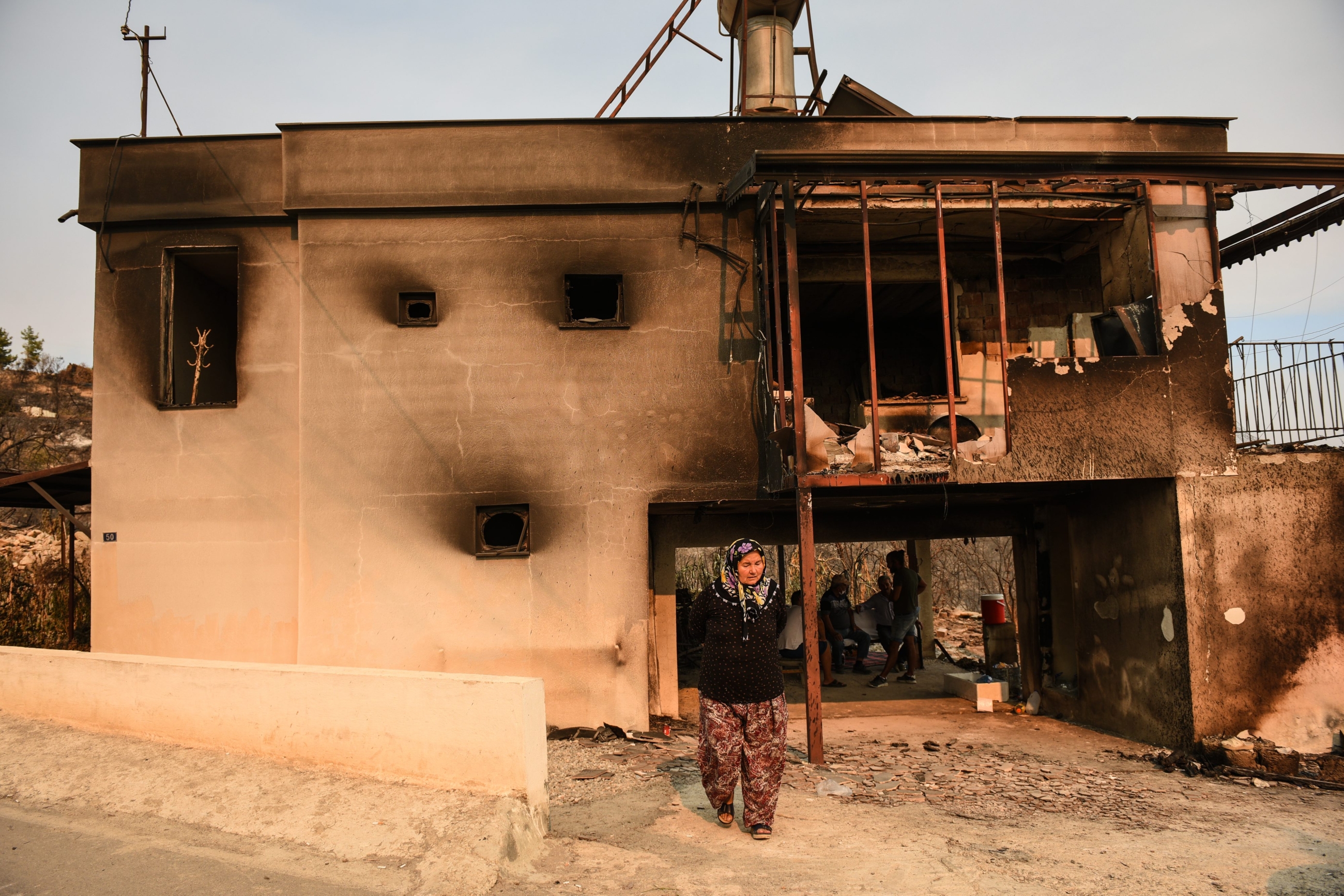
Pressing her back against a wall, Gulsum stares blankly at her devastated village.
“We have lost everything. Our house, cattle, furnishings. We have only a goat, whose eyes can’t see properly due to ashes, whose hairs were partially burnt,” she tells Middle East Eye.
Kalemler is a Turkish village 15km from Antalya’s Manavgat, a popular tourism destination not only for Turks but for Germans and Russians, as well. Today, the picturesque village lies in ruins, one of more than 100 across Turkey to have been devastated by ongoing widlfires.
“In less than 45 minutes, our village was gone,” says Mustafa Cansiz, a Kalemler official.
New MEE newsletter: Jerusalem Dispatch
Sign up to get the latest insights and analysis on Israel-Palestine, alongside Turkey Unpacked and other MEE newsletters
A few houses are left, blackened and charred. But their gardens, farms and cattle are all gone.
“Fifty-eight houses were totally destroyed. A never-seen catastrophe,” Cansiz adds.
Kalemler resident Mehmet says he’s never seen anything like the blaze and destruction. “I was born in this village and lived here for 60 years,” he tells MEE. “I took my car out of the garage and told my wife and children to start collecting some stuff. In five minutes our house caught fire. We couldn’t take anything.”
Finding refuge
Most of the victims found refuge in the houses of their relatives or friends in the first two days of the blaze. The Turkish Red Crescent and other aid organisations rapidly brought containers to temporarily settle the displaced.
Manavgat’s fragrant pine-covered hills caught fire last Thursday. The trees stretch for miles, and became a deadly conduit for the flames.
“Pine cones stretch for hundreds of metres and ignited a fire. So it was impossible to extinguish it,” says one villager.
'There was an intervention by firemen and planes. But there was nothing to do. The fires were taller than five-storey apartments'
- Mustafa Cansiz, Kalemler official
When the fire began, the level of humidity was around 11 percent, far below average, while strong winds fanned the flames.
“There was an intervention by firemen and planes. But there was nothing to do. The fires were taller than five-storey apartments,” Cansiz recalls.
The timing and type of intervention has caused fierce debates in Turkey. While opposition parties have accused the government of failing to send fire-extinguishing aircraft, officials have insisted that even planes of that kind would have been insufficient to counter such a blaze.
One of Kalemler’s villagers told MEE the real issue was that the wildfire hadn’t been detected until it reached urban areas.
Now, this village, which resembles the site of ancient ruins, waits for help. “We need water,” an angry woman shouts as aid materials arrive. “Our priority is water and electricity.”
Still, the summer heat is overpowering; never dropping below 40 degrees in Kalemler and surrounding villages. “I have planted many trees here. They were like my children. Look at that tree. I had planted, watered and nurtured it,” says Gulsum, pointing to a scorched trunk.
“My cow was about to give birth,” she adds, tears beginning to roll down her face. “We saw hell in our paradise.”
Scenes of devestation
In the nearby village of Asagi Isiklar, the houses were partly saved, but farms and greenhouses have been razed to the ground.
The province of Antalya is one of Turkey’s agricultural centres, with high levels of exportation to Europe and Russia, especially greenhouse products such as tomatoes, avocados and bananas.
“All of them are gone,” Ayse Uysal says while standing in front of her store at the entrance to the village. “We were making plans to go to other villages to help them. We were rocked when the imam announced from the mosque’s speakers that the fire was approaching.”
Another woman at the shop says the speed the fire travelled at was terrifying. “It took less than 15 minutes when flames surrounded the village.” Thanking God for saving their lives, Uysal adds: “All the crops are gone.”
Manavgat’s hills, once covered with forest, are now bald. Tourist resorts have become disaster zones, flooded with police cars, military vehicles, soldiers and fire brigades.
“Our profit was already low due to the pandemic,” laments a hotel owner in the town of Servet. “When the fire began half of our customers left the hotel.”
Hasan, a shop owner, is worried tourist numbers will only plummet further. “Manavgat and its adjacent towns used to be so crowded that you would hardly walk,” he says. “Now, there are few tourists.”
Though the wildfires in Manavgat have been fully extinguished, desolation remains. On the shoreline, ash rains down from the sky, covering the once-pristine beaches.
Middle East Eye delivers independent and unrivalled coverage and analysis of the Middle East, North Africa and beyond. To learn more about republishing this content and the associated fees, please fill out this form. More about MEE can be found here.


